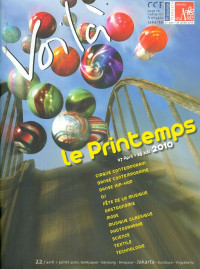
Text
A resource guide our rights are not optional
Women’s rights advocates began activism around the possibility of an Optional Protocol to the CEDAW Convention (OP-CEDAW) in the early nineties. As a result, clear articulations of the need for a complaints mechanism to the CEDAW Convention were made during the 1993 UN Conference on Human Rights in Vienna and the 1995 World Conference on Women in Beijing. Subsequently, women’s rights advocates contributed to the drafting process of the OP-CEDAW and have since led efforts at the national level to ensure the wide ratification of this instrument. Hence, it cannot be denied that the women’s rights movement has played a key role in regard to all stages related to the OP-CEDAW process. This publication aims to strengthen existing efforts around the ratification and effective use of the OP-CEDAW at the national level. We dedicate it to the women and men who have actively advocated for an Optional Protocol to the CEDAW Convention. It contains practical information and tools that can be used by individuals, government officials, institutions and NGOs committed to the promotion of women’s human rights. Another aim of this publication is to provide enough information to promote a holistic approach to research, training, action and advocacy around the CEDAW Convention and its Optional Protocol. As we gather more knowledge and expertise, we hope to continue to producing other materials such as this. We would like to thank UNICEF for making this publication possible. We also take the opportunity to thank the Ministry of Foreign of Affairs of the Netherlands and UNIFEM for supporting other initiatives of the ‘Global Campaign for the Ratification and Use of the OP-CEDAW’. We hope women all over the world find this publication of use in their on-going efforts to claim and realise their rights.
Availability
| PK01069PerpusKP | INA.IV.140 MIC a | My Library | Available |
Detail Information
- Series Title
-
-
- Call Number
-
KP.IV INT r
- Publisher
- Kuala Lumpur : International women's rights action watch asia pacific., 2008
- Collation
-
xiv, 127 hlm. : ilus. ; 30 cm
- Language
-
English
- ISBN/ISSN
-
-
- Classification
-
KP.IV
- Content Type
-
-
- Media Type
-
-
- Carrier Type
-
-
- Edition
-
-
- Subject(s)
- Specific Detail Info
-
-
- Statement of Responsibility
-
-
Other version/related
No other version available
File Attachment
Comments
You must be logged in to post a comment
 Computer Science, Information & General Works
Computer Science, Information & General Works  Philosophy & Psychology
Philosophy & Psychology  Religion
Religion  Social Sciences
Social Sciences  Language
Language  Pure Science
Pure Science  Applied Sciences
Applied Sciences  Art & Recreation
Art & Recreation  Literature
Literature  History & Geography
History & Geography